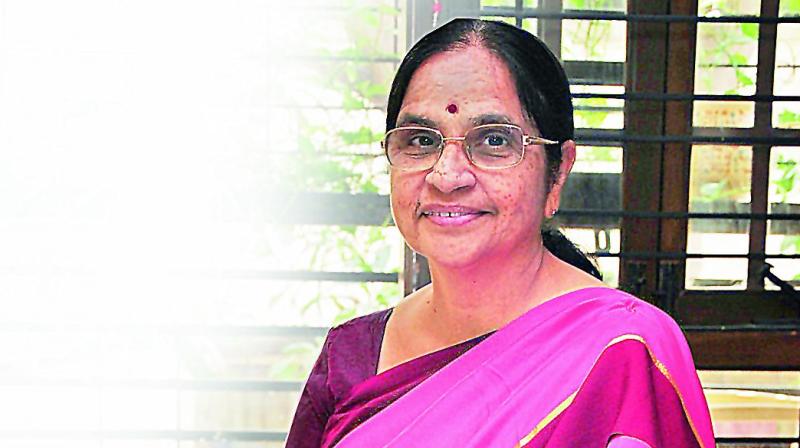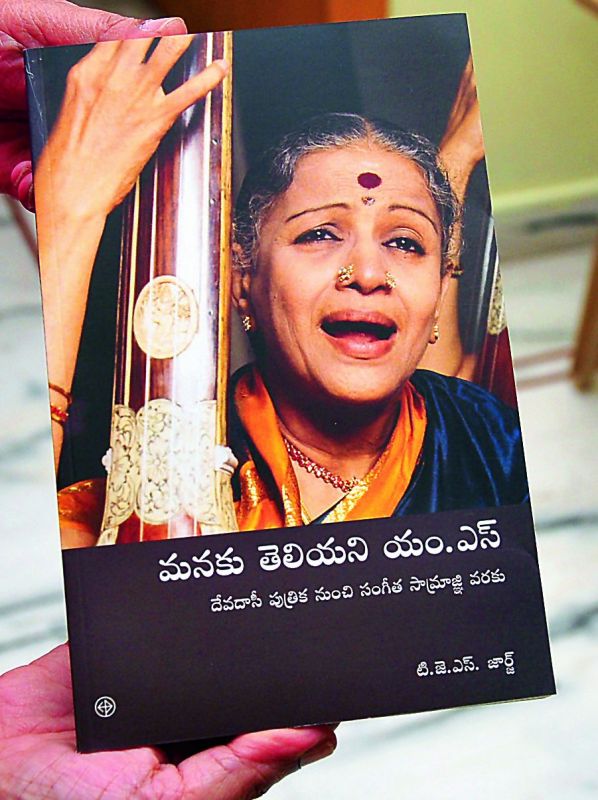Telugu readership is dying
Sahitya Akademi Award-winning writer Volga talks about her book on musician M.S. Subbalakshmi.

Telugu writer Popuri Lalitha Kumari, well-known as Volga, her pen name, has translated one of the best selling English books titled M.S. Subbulakshmi: The Definitive Biography by T.J.S. George into Telugu.
The book Manaku Teliyani MS will be launched at a Manthan event. Says Volga, “For me, M.S. Subbulakshmi’s decision to leave her home in Madurai at night and take a train to Chennai shows the zeal and strength of an individual who decided to take charge of life. It was definitely not an ordinary decision for her to move away from her family, especially as she hailed from the Devadasi community.”
 The book Manaku Teliyani MS will be launched at a Manthan event.
The book Manaku Teliyani MS will be launched at a Manthan event.
She adds, “Those were the days when Muttulakshmi Reddy was fighting to liberate women from the Devadasi community while Bengaluru Nagaratnamma was leading a mission for retaining their identity. The Carnatic music scenario was complex and depended on the socio-political background of artistes to find support. It’s interesting how she weaved her way into this system and created a fan following for her soulful music.”
Volga confesses that she has always been a great fan of the musician. “I’ve heard the live concerts of M.S.Subbulakshmi at Bharatiya Vidya Bhavan and Hari Hara Kala Bhavan in Hyderabad. Since childhood, I have been listening to her voice over the radio, TV and tape recorder. It was very evident that she never had any ego, in spite of being a much sought after artiste. Her music was detached from commercial considerations and she always desired to sing a ‘Dharmika Kucheri’. Therefore, the moment Hyderabad Book Trust suggested a Telugu translation, I accepted it,” she says.
Listing her inspiration, she shares, “Famous writers like Chalam, Sri Sri and Kodavatiganti Kutumbarao always inspired me. When I was younger, I read a lot of Russian literature too. That was during the days of the erstwhile Soviet Union when Telugu translations of Maxim Gorky, Leo Tolstoy and Ivan Turgenev were available at throwaway prices.”
Describing some of her works, Volga says, “Rajakiya Kathalu is a compilation of stories that speak about each part of a woman’s body and how they were exploited in a patriarchal society. Sweccha talks about women’s citizenship other than the identity of a mother, wife or daughter. Vimukta Kadha Samputi, for which I won the Sahitya Akademi Award in 2015, has stories about women in the Ramayana like Sita, Ahalya, Renuka, Surpanaka and Urmila.”
Expressing concern about the number of readers going down along with the poor library facilities in districts and mandals of Telangana State, Volga says, “There are many young talented Telugu writers but reading books is no more a fashion. Unfortunately, there isn’t much money in Telugu writing. It would be very difficult for a young writer to take this up as a full time profession.”

